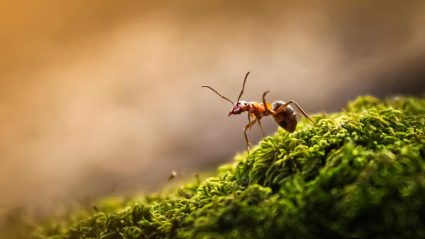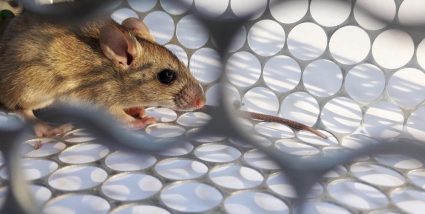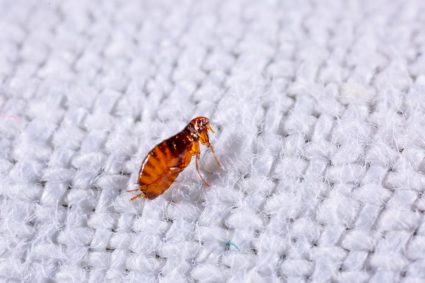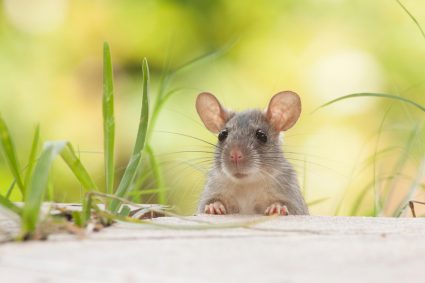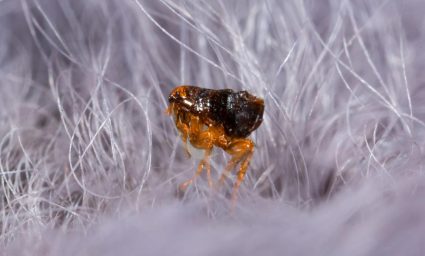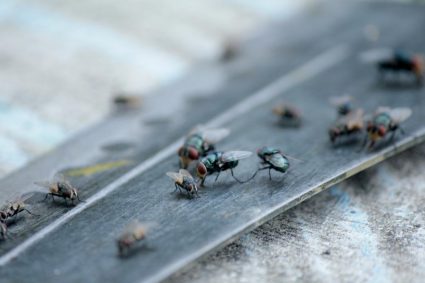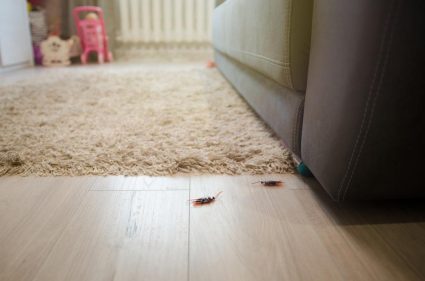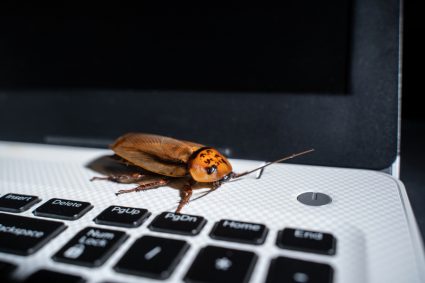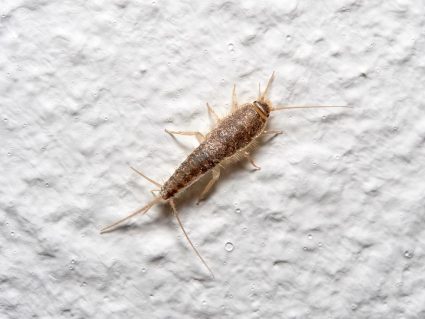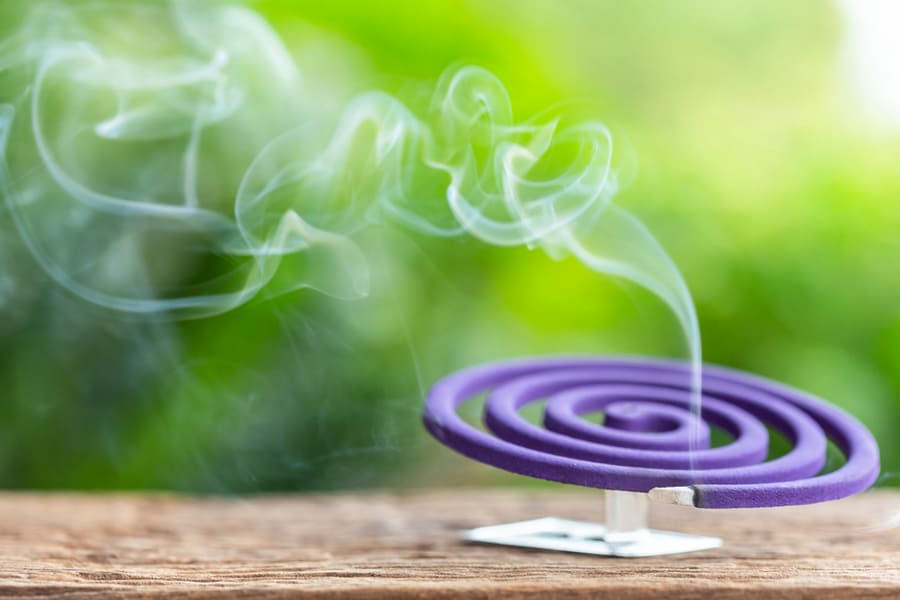
Flies can be annoying, resulting in using all kinds of ways to drive them away. However, particular incense containing resins of various plants is known for repelling flies naturally.
Research also reveals a long list of incense types that effectively drives flies away.
Many types of incense containing plant matter belonging to Basil, Cedar, Cinnamon, Citronella, Eucalyptus, Lavender, Peppermint, Rosemary, and many more species, can effectively repel flies.
Let’s learn what incense deters flies and ways to use scents to repel flies and other pests.
Why It’s Important To Repel Flies?
Every insect, even the ones commonly considered pests, plays a vital role naturally and biologically.
However, coexisting with certain insects, such as flies, especially when infestations get out of hand, can be unhealthy for humans, other animals, and plants.
1. Stop the Spreading of Diseases
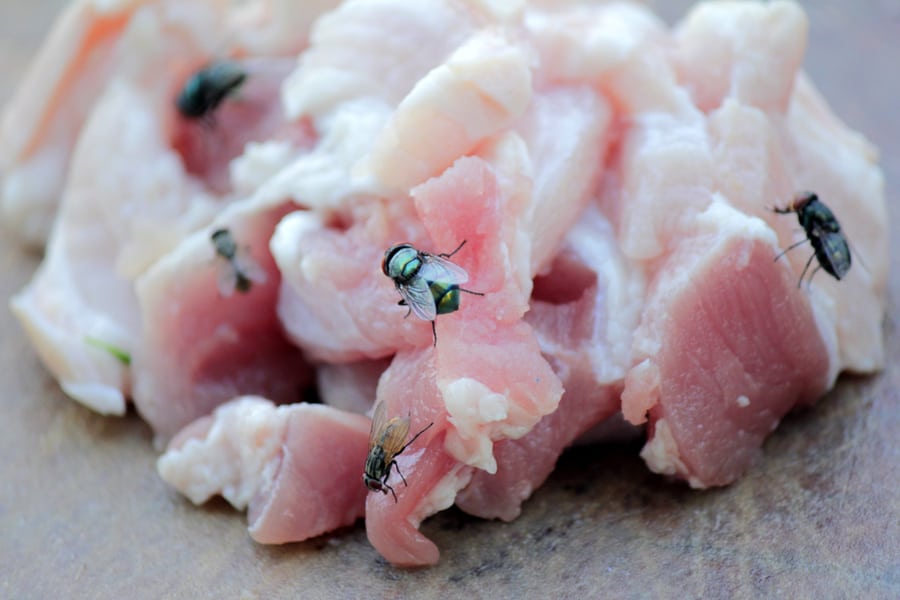
Yes, a bunch of flies flying around while having lunch with family or relaxing in the garden is annoying. However, repelling flies is more important than enjoying peace of mind.
Flies consider all kinds of things as food, including animal carcasses, fecal matter, and gutter water.
They feed from unhealthy sources while also feeding from human food and resting on surfaces that come into direct contact with food, resulting in contamination.
Flies also spread germs and disease through contact with humans’ and animals’ eyes, noses, mouths, and open wounds.
Flies carry approximately 351 bacteria while transmitting around 65 diseases, including anthrax, cholera, leprosy, salmonella, and typhoid fever.
Therefore, keeping flies away is vital in ensuring health and hygiene.
2. Prevent Damage to Plants

Certain flies, such as the Whitefly, feed on plant cells. A Whitefly infestation can suck the life out of an entire home garden in no time.
Additionally, they can contaminate crops, including vegetables, fruits, and herbs.
Therefore, keeping flies under control and away from gardens is essential.
3. Avoid a Serious Nuisance

In urban areas, swarms of flies can be a considerable nuisance.
Therefore, it’s everyone’s responsibility to do their part to eliminate flies and prevent them from multiplying into large infestations.
In addition, when fly infestations get out of hand, toxic pesticides are used as a solution without leaving much of a say or choice for those who would like to stay away from harmful toxins.
Common Species of Flies
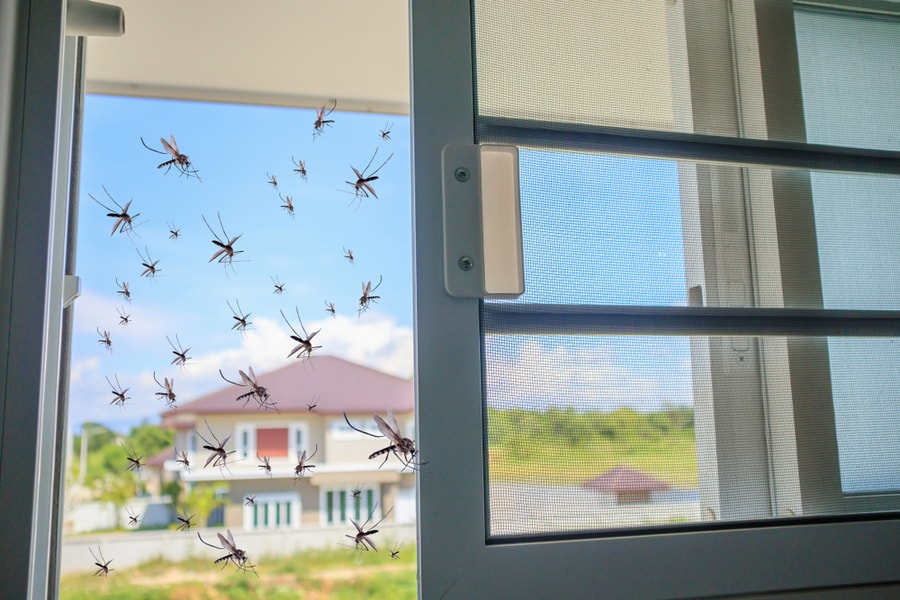
Various flies can become a nuisance, risking the well-being of humans, pets, and plants.
Here’s a list of common flies that people often try to repel:
- Blow Fly
- Deer Fly
- Fruit Fly
- Gnats
- Horsefly
- Housefly
- Little Black Fly
- Moth Fly
- Whitefly
What Incense Repels Flies?
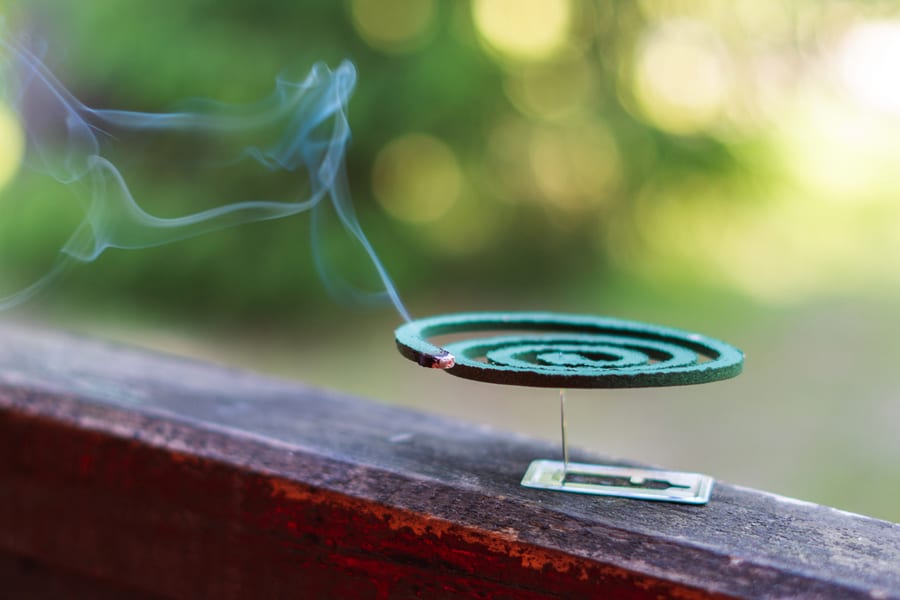
Through evolution, flies have developed an excellent sense of smell, helping them find food sources.
Humans have used the same weapon to repel flies for millennia, combined with various scents that flies find irritating.
The word “incense” comes from the Latin term “to burn,” relating to burning plant matter to create aromatic smoke.
Incense comes in many forms, such as sticks, cones, and coils. While some incense emits appealing or relaxing scents, some aromas repel various pests, including flies.
Fly-repellant incense contains mixes of plant matter, including oils from plants containing natural scents that flies find repulsive.
Some fly-repelling incense includes combinations of these scents, emitting highly penetrative aromas that flies find overwhelming.
Here’s a list of fly-repelling incense types:
- Apple Cider Vinegar
- Basil
- Bay Leaves
- Camphor
- Catnip
- Cedar
- Cinnamon
- Citronella
- Clove
- Elderberry
- Eucalyptus
- Lemongrass
- Lavender
- Marigold
- Molasses
- Orange
- Patchouli
- Pepper
- Peppermint
- Pine
- Rosemary
- Rue
- Spearmint
- Tansy
Inhaling pollutants emitted by burning incense can cause various side effects, including irritation in the throat, nose, and eyes, respiratory and asthma symptoms, and headaches.
Put out the incense immediately and go outdoors to inhale fresh air upon experiencing such discomfort.
Common Incense Alternatives
Although highly popular, lighting incense isn’t the only way to use aromas to repel flies and other insects.
Let’s learn other effective ways of using natural fragrances to repel flies.
1. Essential Oils

This is one of the most popular ways of using various scents to repel flies and other pests.
Essential oils of almost all the fly-repelling plants mentioned earlier are available, offering a range of methods to use them.
DIY Mixes
Dilute five to ten drops of essential oil with water. Transfer the mix to a spray bottle before applying it in areas frequented by flies.
Wiping surfaces with a towel soaked in the mixture or placing soaked cotton balls in nooks and corners are also effective.
Using a Diffuser
Diffusers help spread the aromas of essential oils.
All kinds of diffusers are available, from simple clay ones that use candles or electronic diffusers.
2. Candles and Torches
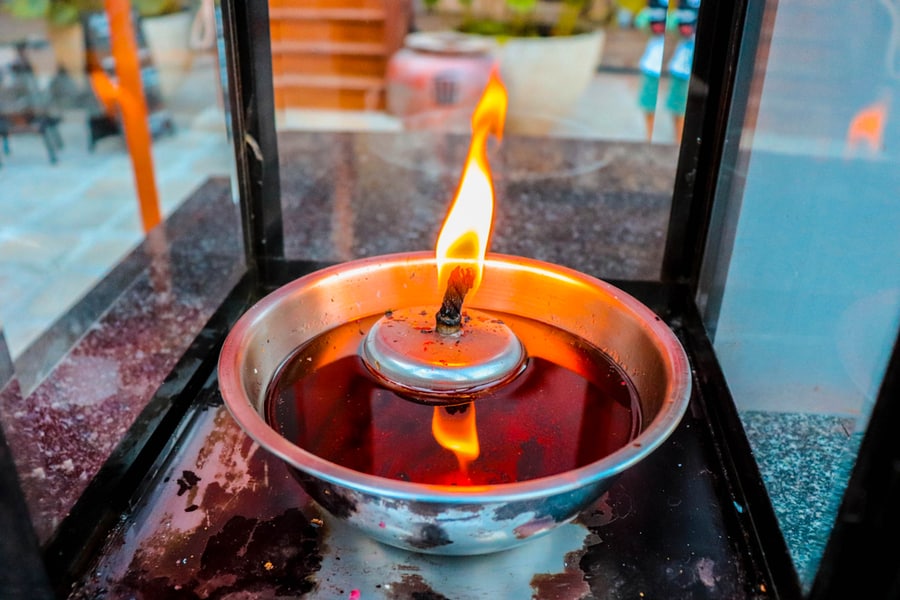
Lighting candles and torches that emit the above scents are common alternatives to lighting incense.
3. Live Plants
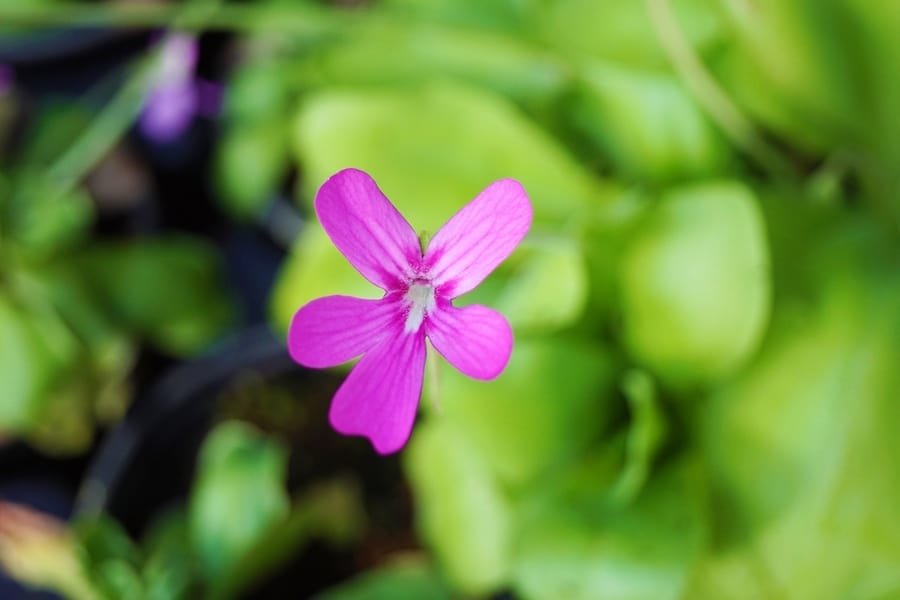
Growing potted herbs and flowering plants that emit fly-repelling scents is another popular way of keeping flies away. Most of these plants offer many other benefits, including repelling various other pests, making this method very popular among homeowners.
Conclusion
Last summer, swarms of flies turned out to be a massive nuisance in our neighborhood, putting everyone’s health and hygiene at risk.
Luckily, we came across various incense products which gave respite from the flies, and my research revealed a list of natural plants with pest-repelling qualities we effectively used in different ways to drive flies away.
Frequently Asked Questions
What Scent Will Keep Flies Away?
The sharp scents of Apple Cider Vinegar, Basil, Bay Leaves, Camphor, Catnip, Cedar, Cinnamon, Citronella, Clove, Elderberry, Eucalyptus, Lemongrass, Lavender, Marigold, Molasses, Orange, Patchouli, Pepper, Peppermint, Pine, Rosemary, Rue, Spearmint, and Tansy drive flies away.
Do Flies Stay Away From Incense?
Yes, flies stay away from incense that emits fragrances such as Basil, Catnip, Cedar, Cinnamon, Citronella, Clove, Elderberry, Eucalyptus, Molasses, Orange, Patchouli, Pepper, Peppermint, Pine, and Rosemary.
Does Lavender Incense Repel Flies?
Flies find the smell of Lavender repulsive. However, burning Lavender Incense can effectively repel flies and many other insects, including beetles, fleas, moths, and mosquitoes.
Why Do Flies Hate Incense?
Flies hate penetrating aromas of burning incense belonging to natural insect-repelling plans such as Basil, Catnip, Cedar, Cinnamon, Citronella, Clove, Elderberry, Eucalyptus, Molasses, Orange, Patchouli, Pepper, Peppermint, Pine, Rosemary.

